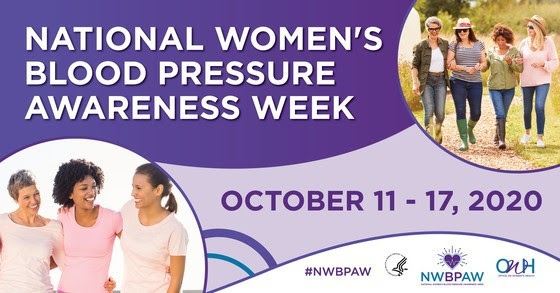
The HHS Office on Women’s Health (OWH) will host National Women’s Blood Pressure Awareness Week (NWBPAW), October 11 - 17, 2020. The weeklong observance emphasizes the importance of blood pressure control and monitoring. NWBPAW empowers women to take control of their health by sharing everyday actions they can take to improve their heart health. #NWBPAW
Daily ThemesSunday: Heart Disease in Women Monday: High Blood Pressure in Women Tuesday: Understanding and Controlling Hypertension Wednesday: Monitor Your Blood Pressure Daily Thursday: Develop Healthy Heart Habits to Lower Blood Pressure Friday: Community Resources & Success Stories Saturday: Sharing What Works: Personal Stories
Ways organizations can support National Women’s Blood Pressure Awareness week in 2020: - Promote the health observance on social media (Facebook, Twitter, Instagram, and LinkedIn)
- Include our messages in your e-newsletter, blog, etc.
- Share key information with members/customers/clients encouraging them to promote the observance through their own channels
- Promote National Women’s Blood Pressure Awareness week on your website
| 








No hay comentarios:
Publicar un comentario